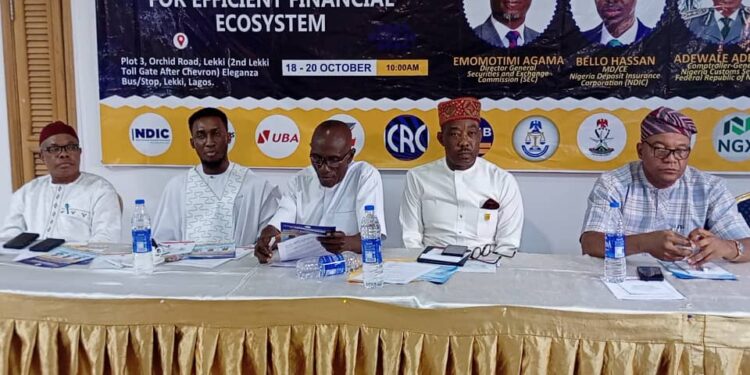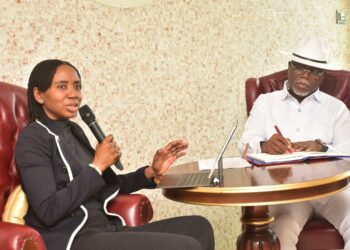The Federal Government has been charged to facilitate a home grown financial infrastructure that will bring into the informal sector the estimated N36 trillion as it harps on the policy of financial inclusion.
This was part of the communique drawn by participants at the multisector workshop workshop held in Lagos recently. They stood firm that government should match its words with actionable plan that is seen and operable, and not mincing words the participants drawn from the banking, maritime, oil and gas as well as the Nigerian Customs Service demanded that government should address and empower access to credit for informal sector by reducing cost of credit as it seeks ways to grow the internally generated revenue.
They also posit that government should make the initial huge investment in infrastructure to harness water resources to generate its own electricity through investment in hydro and gas energy to power the ports and its environs.
Spurred by what digitisation could accomplish they pushed for integration of all stakeholders into one digital e-customs modernisation project platform which should cultivate public-private partnership to lower cost of acquisition and achieve more success; and follow this with NCS digitisation process to enhance efficiency of trade, revenue generation and collection. Stretching further they called for effective collaboration among the ministry of communication and digital technology, banks and other relevant government agencies to build improved digital infrastructure as a means of lowering costs and upgrading transactions efficiency in the banking sector.
7) The stakeholders also agreed that customs should sustain the authorised economic operators (AEO) programme in line with the world customs organization (WCO) SAFE FRAMEWORK of standards designed to enhance security in the supply chain while facilitating trade and reducing leakages caused by smuggling or underreporting while systems like NICIS II streamline import and export documentation and ensuring that duties are accessed in real time, fast tracking clearance and simplifying payment processes.
They said that cyber security, digital automation are dual purpose vehicle that protects data from hackers and steadily erasing human manual errors and reducing delays
They also pushed for home-grown financial infrastructure and this could require establishing a study group responsible for researching and ascertaining local needs in the area of technology so that the needs of the people would be known and solutions provided.
the list of demand on government included a task on Nigerian Communication Commission to redouble efforts to eliminate down time or reduce to the barest minimum the number of hours lost per downtime relative to countries with back up systems that bolster their network
Featured picture; .L-R: Deputy President, Maritime Workers Union of Nigeria, (MWUN) , Comrade Boniface Udoh; Chairman, Vindi Petroleum, Mr. Victor Kalu; President, Finance and Business Online Publishers (FiBOP), Mr. Charles Onwuatogwu ; representative of the CG Nigeria Customs, Comptroller Dera Nnadi ad the Deputy Secretary General, MWUN, Comrade Oniha Erazua







































